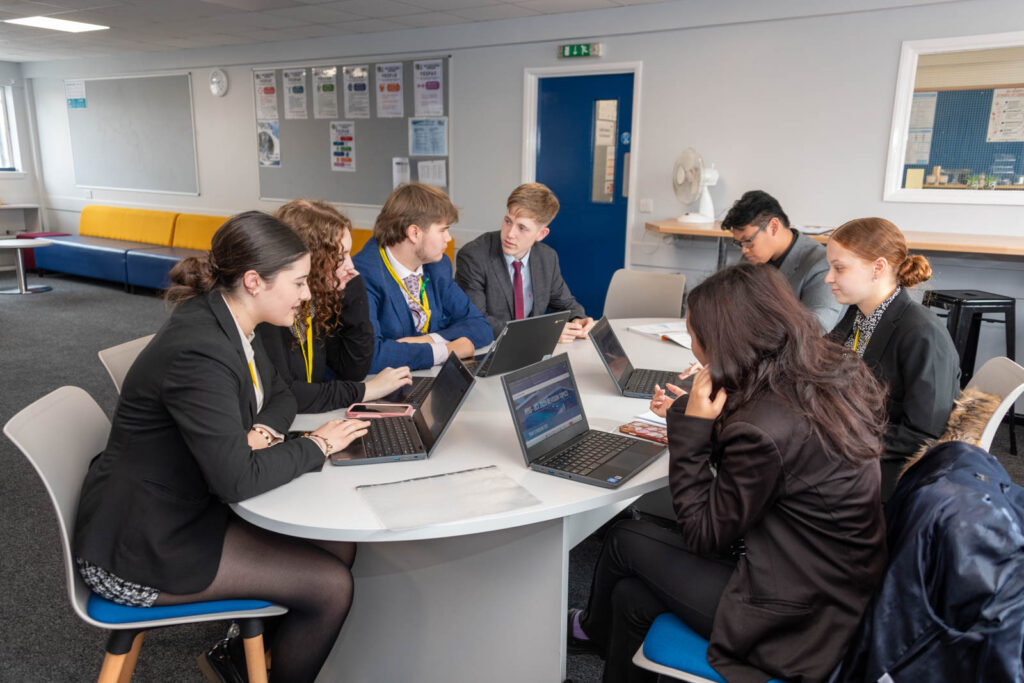Home » Sixth Form » Expectations and Guidelines » Academic Expectations

The two years in Sixth Form are probably the most important in your education and will determine the path you take in life. They should be the most enjoyable and fulfilling of your school career.
Here at Archbishop Ilsley Sixth Form, you will be encouraged, challenged and stretched in your academic achievement, social confidence and personal development to strive for excellence. We expect all of our students to be aspirational.
In the Sixth Form, students take a far greater level of individual responsibility for their education. Independence is an important part of a student’s development; we support our students in adopting a proactive approach to learning.
The most successful students are those who understand ‘how’ they learn. It is important for all of our students to be curious, active learners. In tutor time, students will be taught a range of strategies to support their learning and revision. These will include the Cornell notes method, brain dumps, mind mapping, self-quizzing and flashcards. Students will also learn about the sixth form mindset focusing on six successful learning habits:






Students should seek help from their subject teachers and tutors if they are struggling to work independently.
Students will have several non-contact periods on their timetable per week.
These are study periods and should be used wisely, as students will have a lot of work to complete outside of the classroom. No students will have ‘free periods’.
Sixth Form students can use the study room or library for quiet, private study and the common room for more group work tasks. In addition, it is our expectation that students are studying at home during the evenings and at weekends.
As a general rule, students should spend around fifteen hours a week studying (based on 3 A Levels), in addition to lesson time; sometimes it will need to be more than this.
“We are what we repeatedly do. Excellence, therefore, is not an act, but a habit.”
Aristotle

How can we help you to…
When goal pursuit is fuelled by personal endorsement and valuing of the goal, commitment and perseverance will be high.
Work hard!


Often students appear to be working very hard but do not make the progress we expect. Effort alone does not = success. How can you be sure that you are working on the right things? The process of learning and mastery can be categorised:



In the study period and/or on the evening following each of your lessons, you should spend 12-15 minutes (24-30 minutes for a double) rereading your notes, writing the summary section at the bottom of your Cornell notes and making relevant flashcards e.g. for key vocabulary, definitions, concepts, events/plot, etc. Everything that you need to recall etc.
This is your ’homework’. Each of your teachers should give you at least one hour of homework each week. If they don’t, ask them for some! If you find this takes more than one hour, that’s fine, you can take this from the proactive phase (not from the consolidation phase though). Equally, if you find you finish your reactive work quickly, spend more time on your proactive work.
This is the section that will broaden and deepen your overall understanding of the subject you are studying. It will not necessarily involve work that has been set by your teacher, but instead, it is about you doing the extra practice questions, wider reading etc. Your teachers will give you a list of things that you could do in order to be proactive in your learning.
We recognise the importance of the effective use of ICT and as such, offer the following advice to help keep everyone safe online.
Sixth Form students should consider the following when using the internet or email:
Outside lessons, we expect all Sixth Form students to be primed to be role models:
Inside lessons, we expect all Sixth Form students to demonstrate:
Class Charts is used to reward positive learning behaviours and address sanctions.
On enrolling into the Sixth Form, all students will sign a copy of the Sixth Form Contract which outlines our expectations. This is also signed by your parents/carers and tutors. There is a copy of the contract in this handbook.
Proudly part of the St. Teresa of Calcutta Multi Academy Company.
Registered Company No. 11844357. Registered Address:
St Joseph’s House | 1157 Warwick Road | Acocks Green | Birmingham | B27 6RG
Tel: 0121 706 4200 | info@stocmac.org.uk
© 2024 All Rights Reserved.